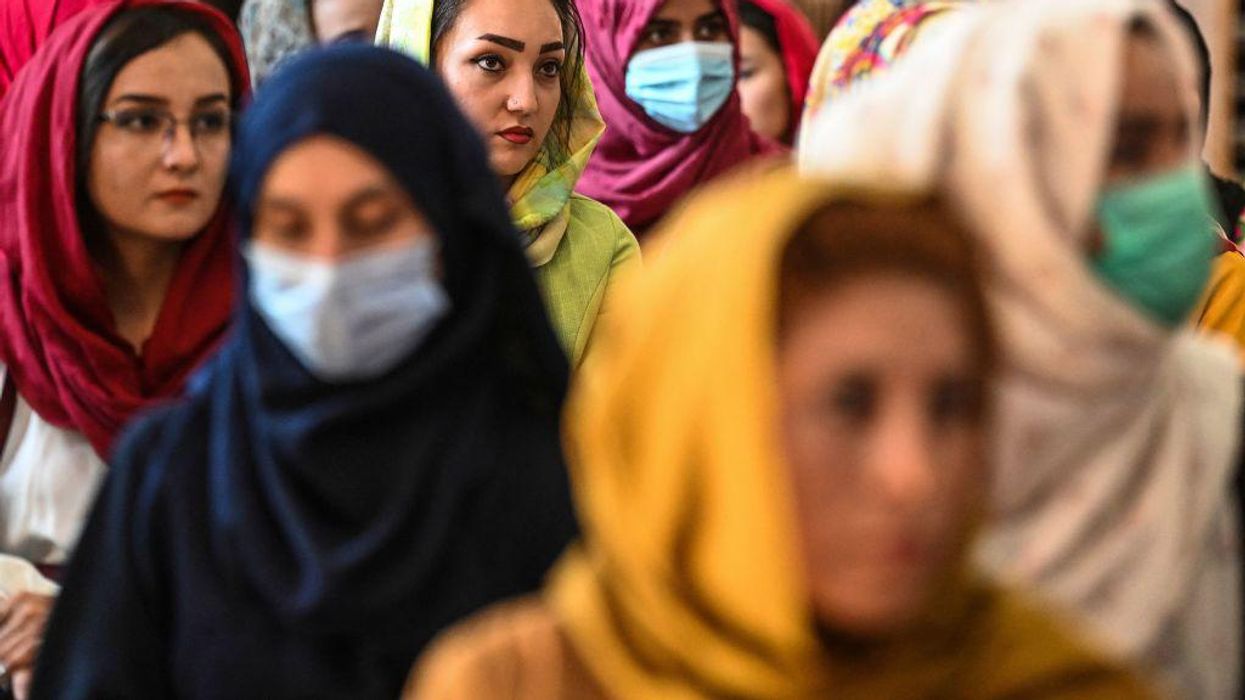
SAJJAD HUSSAIN/AFP via Getty Images

The Taliban's rapid takeover of Afghanistan in recent weeks has left many of the country's residents filled with fear and dread over what their futures will look like under the new militant regime.
That palpable fear was apparent in the heartbreaking video of a young Afghan woman crying over the sad state of affairs in her country. It was also on full display over the weekend, when scores of desperate Afghan residents climbed onto departing U.S. planes in hope of escape from the country — some falling hundreds of feet to their deaths.
Women, especially, are expected to lose many of the rights they enjoyed under the last two decades of U.S. military occupation and be subjected to the harsh treatment they experienced under the Taliban's previous rule.
Perhaps foreshadowing the trials to come, CNN told the story of an Afghan mother of four who suffered a brutal death last month at the hands of Taliban militants as they swept through the northern region of the country:
Najia was at home with her three young sons and daughter in a small village in northern Afghanistan when Taliban fighters knocked on their door.
Najia's daughter Manizha, 25, knew they were coming — her mother had told her they'd done the same thing the previous three days, demanding that she cook food for up to 15 fighters.
"My mother told them, 'I am poor, how can I cook for you?'" said Manizha. "(The Taliban) started beating her. My mother collapsed and they hit her with their guns — AK47s."
Manizha said she yelled at the fighters to stop. They paused for a moment before throwing a grenade into the next room and fleeing as the flames spread, she said. The mother-of-four died from the beating.
In its report, CNN described the horrifying incident as a "chilling preview of the threat now facing women across Afghanistan." The outlet even used aliases for Najia and Manizha in order to protect their identities.
If history repeats itself, violence similar to the kind carried out against Najia will soon threaten many more Afghan women. During the Taliban's last reign in Afghanistan, from 1996 to 2001, women were treated as second-class citizens.
In a 2001 report, the U.S. State Department said that "the Taliban regime cruelly reduced women and girls to poverty, worsened their health, and deprived them of their right to an education, and many times the right to practice their religion."
The regime also "perpetrated egregious acts of violence against women, including rape, abduction, and forced marriage," causing some families to send their daughters to Pakistan or Iran for their protection.
Yet now, in the wake of its takeover, the Taliban is reportedly vowing to inaugurate an "inclusive" new government. In the tolerant new regime, women won't be victimized, Taliban spokesperson Enamullah Samangani said on Afghan television.
The Taliban is ready to "provide women with the environment to work and study, and the presence of women in different (government) structures according to Islamic law and in accordance with our cultural values," he claimed.
The claims have been received with healthy skepticism, justifiably so. Many believe the regime is simply paying lip service to the Western world.
On Monday, State Department spokesperson Ned Price said the U.S. might recognize a potential new government of Afghanistan so long as that government "upholds rights, doesn't harbor terrorists, and protects the rights of women and girls."